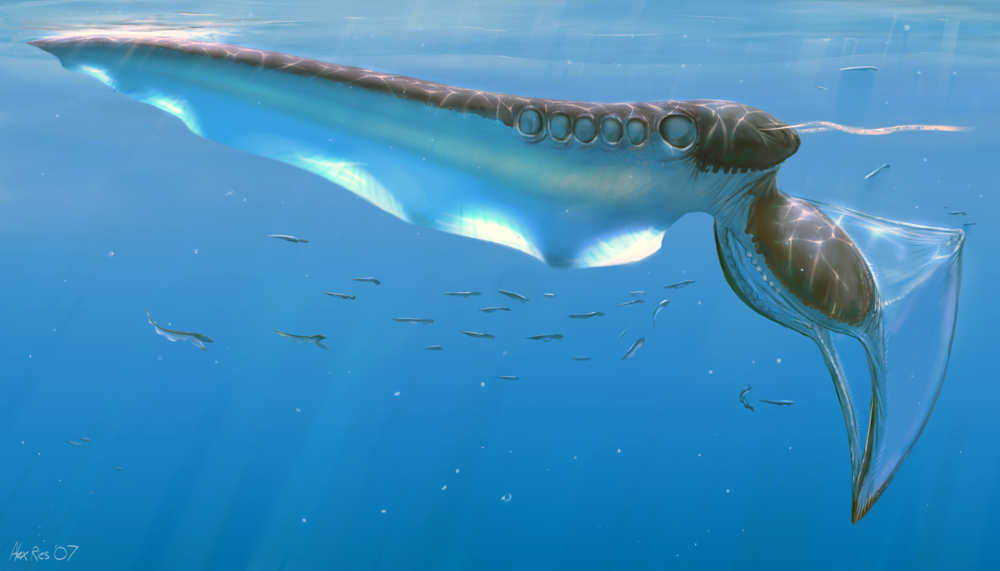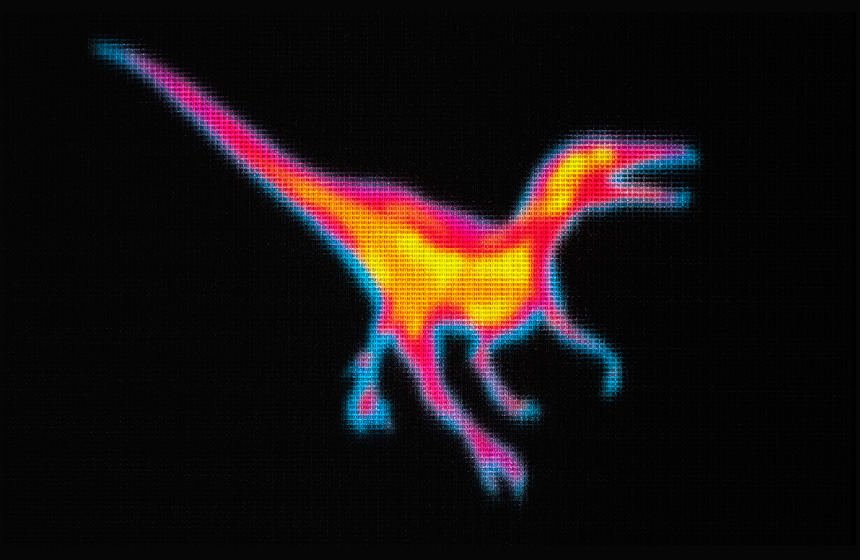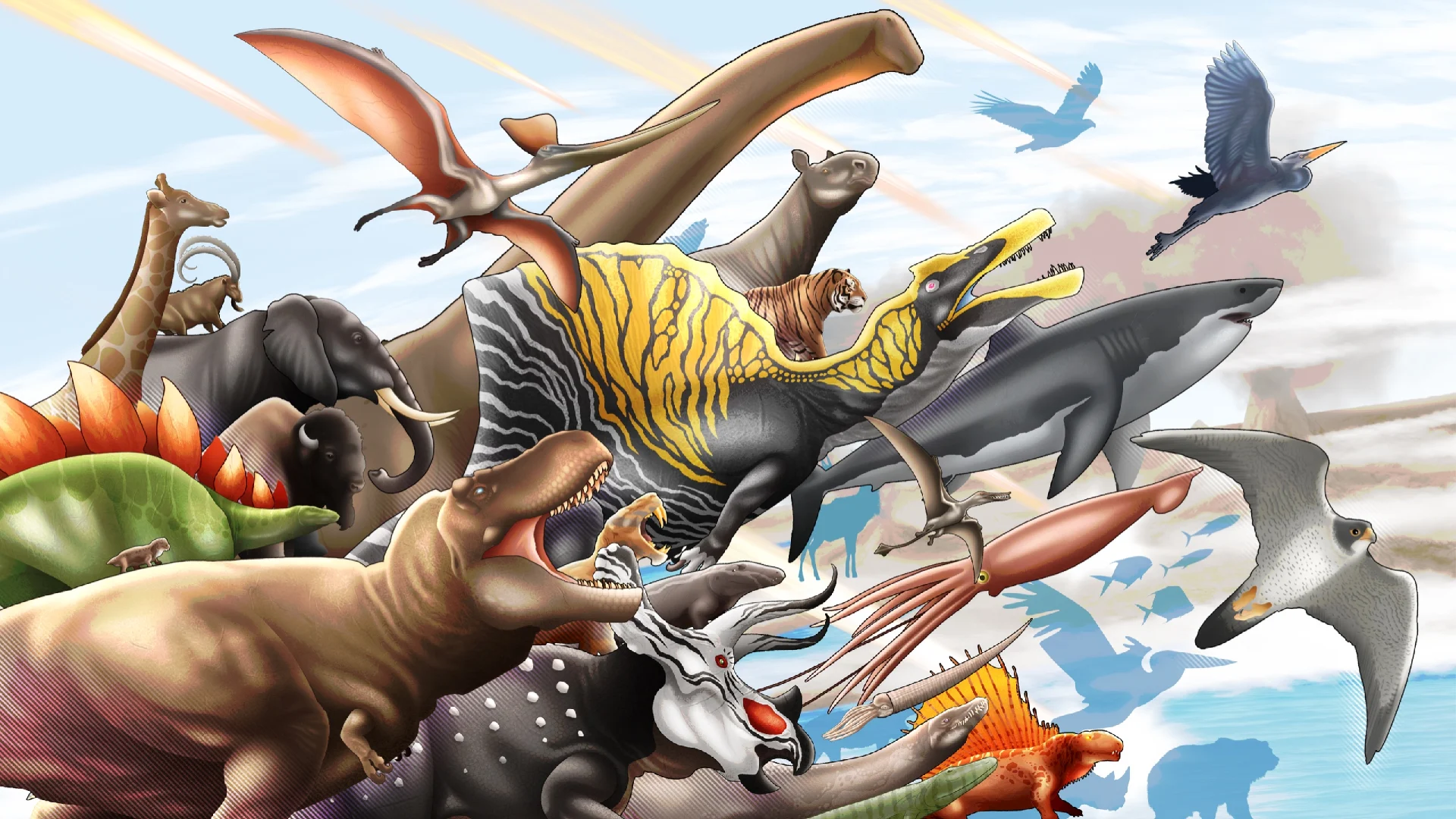Post by creature386 on Dec 5, 2020 21:39:29 GMT 5
On Wednesday, Netflix released its four-part documentary titled Alien Worlds. In the tradition of Discovery Channel's Alien Planet and NationalGeographic's Extraterrestrial, Alien Worlds concerns itself with an age-old question: Are we alone in this universe? And if there are aliens, what do they look like?
Using beautiful CGI, the documentary reconstructs lifeforms considered plausible by scientists from four different planets. Meanwhile, several segments on Earth explain us the science that led the showrunners to come up with their alien concepts.
According to some of its contributors, the show is less of a "Walking With Aliens", but rather uses its aliens as a vehicle to teach viewers scientific concepts like ecology or evolution.
I posted my reactions to the four episodes on Discord. Spoiler in case you don't want me to influence you too much:
Using beautiful CGI, the documentary reconstructs lifeforms considered plausible by scientists from four different planets. Meanwhile, several segments on Earth explain us the science that led the showrunners to come up with their alien concepts.
According to some of its contributors, the show is less of a "Walking With Aliens", but rather uses its aliens as a vehicle to teach viewers scientific concepts like ecology or evolution.
I posted my reactions to the four episodes on Discord. Spoiler in case you don't want me to influence you too much:
Watched the first episode of Alien Worlds and found it kinda disappointing.
It seems to retread Alien Planet's and Extraterrestrial's concept of "let's have a bunch of animals like from our world adapt to some exoplanet and call it a day". That makes just it feel like a dinosaur documentary with aliens. It doesn't really go for the "harder" concepts you see in science fiction literature like silicon life or life in the inside of neutron stars (or even carbon life dealing with something other than water, like acids, ammonia or methane-ethane).
At least the final episode seems to deal with extraterrestrial civilizations which could be interesting. Science fiction already deals with such stuff a lot, but sci-fi has lots of constraints that documentaries don't, so that alone might be enough to give the show a try.
It seems to retread Alien Planet's and Extraterrestrial's concept of "let's have a bunch of animals like from our world adapt to some exoplanet and call it a day". That makes just it feel like a dinosaur documentary with aliens. It doesn't really go for the "harder" concepts you see in science fiction literature like silicon life or life in the inside of neutron stars (or even carbon life dealing with something other than water, like acids, ammonia or methane-ethane).
At least the final episode seems to deal with extraterrestrial civilizations which could be interesting. Science fiction already deals with such stuff a lot, but sci-fi has lots of constraints that documentaries don't, so that alone might be enough to give the show a try.
So, watched episode two of Alien Worlds (my busy schedule doesn't allow more than one episode daily). Gorgeous visuals, as usual. Unfortunately, the concept of life on a tidally locked red dwarf star planet isn't as intriguing anymore after having already seen it in Extraterrestrial. Extraterrestrial at least adressed the biggest issue for life around red dwarfs, the solar flares. Still, the pentapod looks awesome.
Watched episode three of Alien Worlds now. I'd like to sue the authors for plagiarizing my ideas. In a sci-fi story I'm working on, I have a similar planet to the one shown in the episode. It also has 10% more oxygen in his atmosphere, red plants and it's orbiting two suns, one of which is a K star. And it's even called Eden! Clearly these people stole my ideas!
(Or we both just took inspiration from that famous paper on superhabitable planets. Could also be.)
Anyway, pros and cons of episode three.
-These predators... Primates with retractable arms, seriously?
-They got the term "symbiosis" wrong. It's not symbiosis if someone gets poisoned.
+The plants look wonderful. The humongous fungi aren't terribly creative, but they still look beautiful and still far better than what grows on my own Eden (which is essentially just trees, but in red).
+The mating of those grazers is awesome.
+I like how they took the planetary tilt into account, as I forget that all the time.
Next episode will tread onto ground Alien Planet and Extraterrestrial didn't touch: Spacefaring aliens!
I'm so hooked already.
(Or we both just took inspiration from that famous paper on superhabitable planets. Could also be.)
Anyway, pros and cons of episode three.
-These predators... Primates with retractable arms, seriously?
-They got the term "symbiosis" wrong. It's not symbiosis if someone gets poisoned.
+The plants look wonderful. The humongous fungi aren't terribly creative, but they still look beautiful and still far better than what grows on my own Eden (which is essentially just trees, but in red).
+The mating of those grazers is awesome.
+I like how they took the planetary tilt into account, as I forget that all the time.
Next episode will tread onto ground Alien Planet and Extraterrestrial didn't touch: Spacefaring aliens!
I'm so hooked already.
Finally finished episode four, too.
There were two negative points. "Terra" was a rather uncreative name and too strongly associated with Earth to be taken seriously. I also don't like how seriously they're took the Drake equation.
Otherwise, this episode was stellar (pun intended). These hive mind aliens were just plain awesome. I love how they didn't show them and only gave us just enough brief glimpses to feed our imagination. There is no way they could have accurately portrayed aliens billions of years ahead of us, so preserving the mystery was the best they could do. I also like how they ended on a rather optimistic note with that whole first contact rather than something as depressive as the heat death of the universe.
There were two negative points. "Terra" was a rather uncreative name and too strongly associated with Earth to be taken seriously. I also don't like how seriously they're took the Drake equation.
Otherwise, this episode was stellar (pun intended). These hive mind aliens were just plain awesome. I love how they didn't show them and only gave us just enough brief glimpses to feed our imagination. There is no way they could have accurately portrayed aliens billions of years ahead of us, so preserving the mystery was the best they could do. I also like how they ended on a rather optimistic note with that whole first contact rather than something as depressive as the heat death of the universe.





